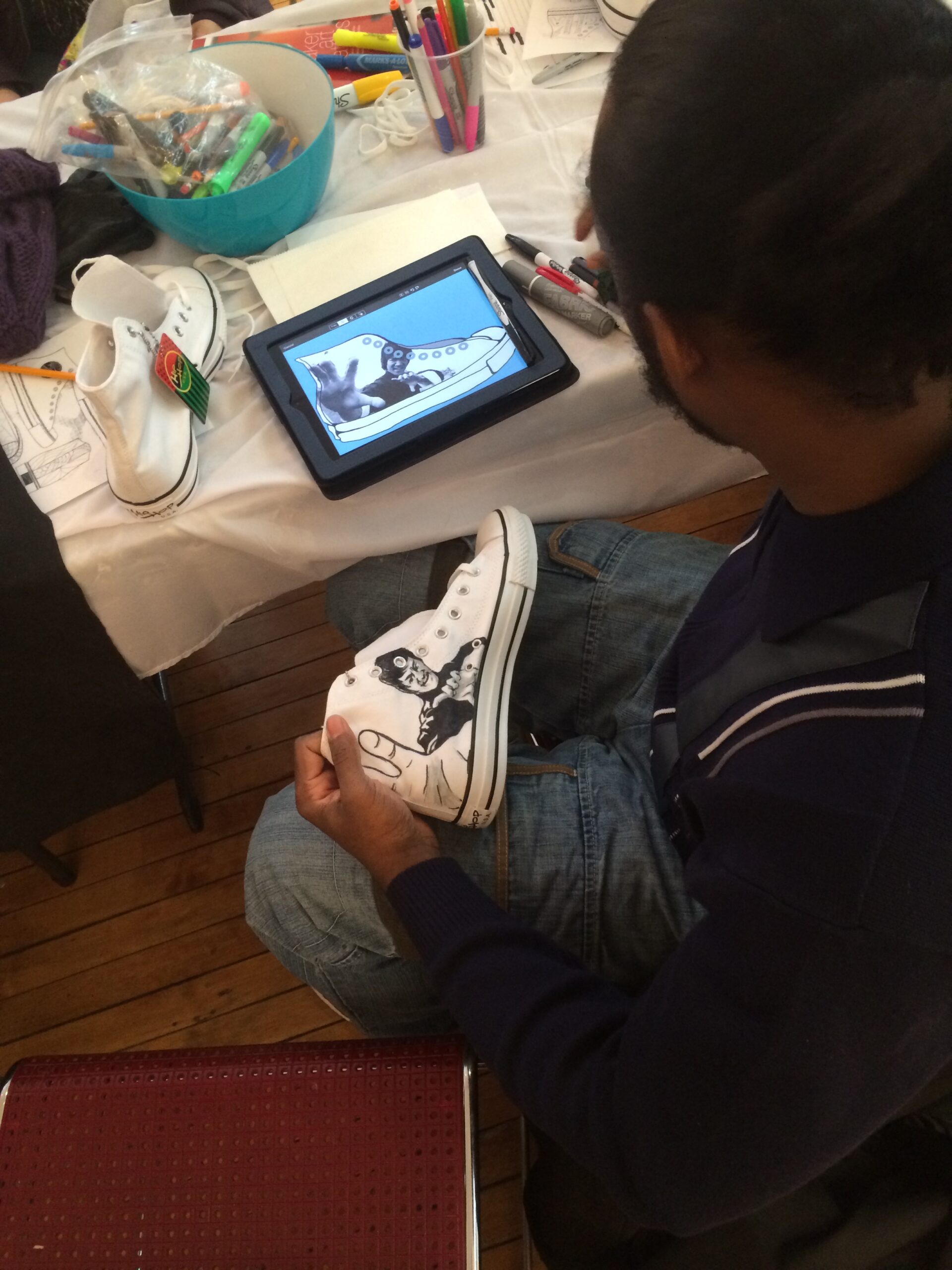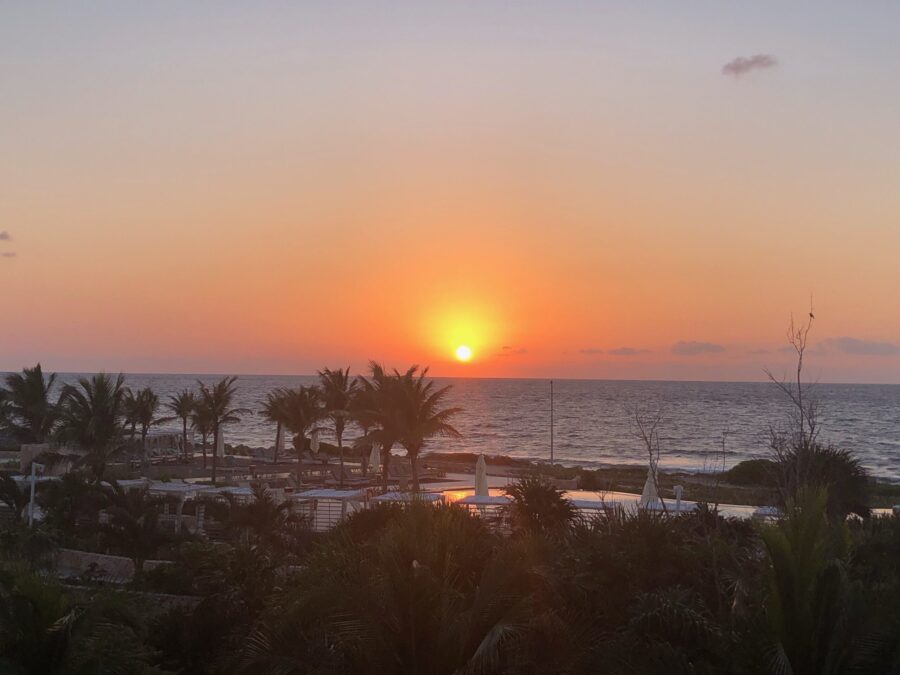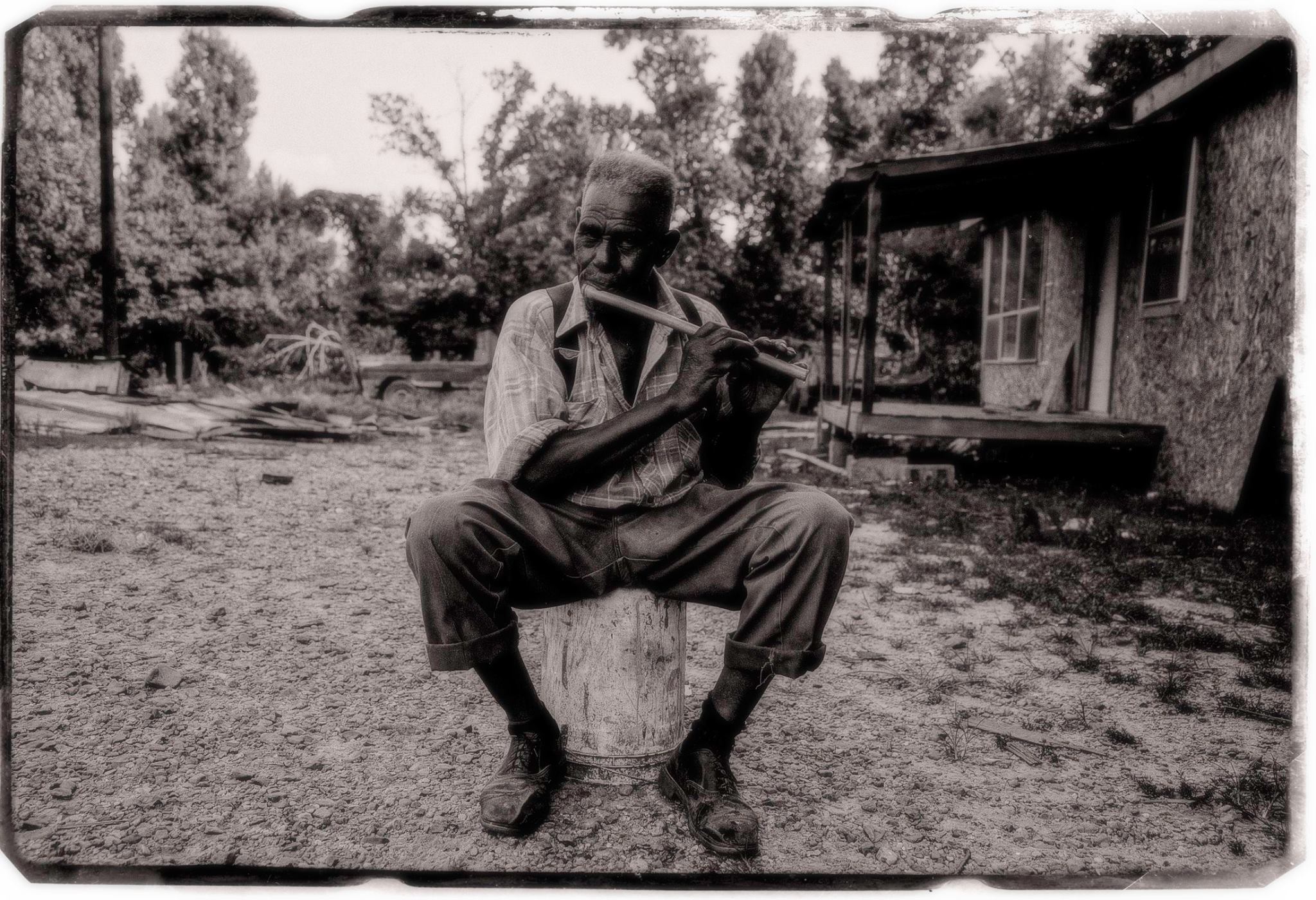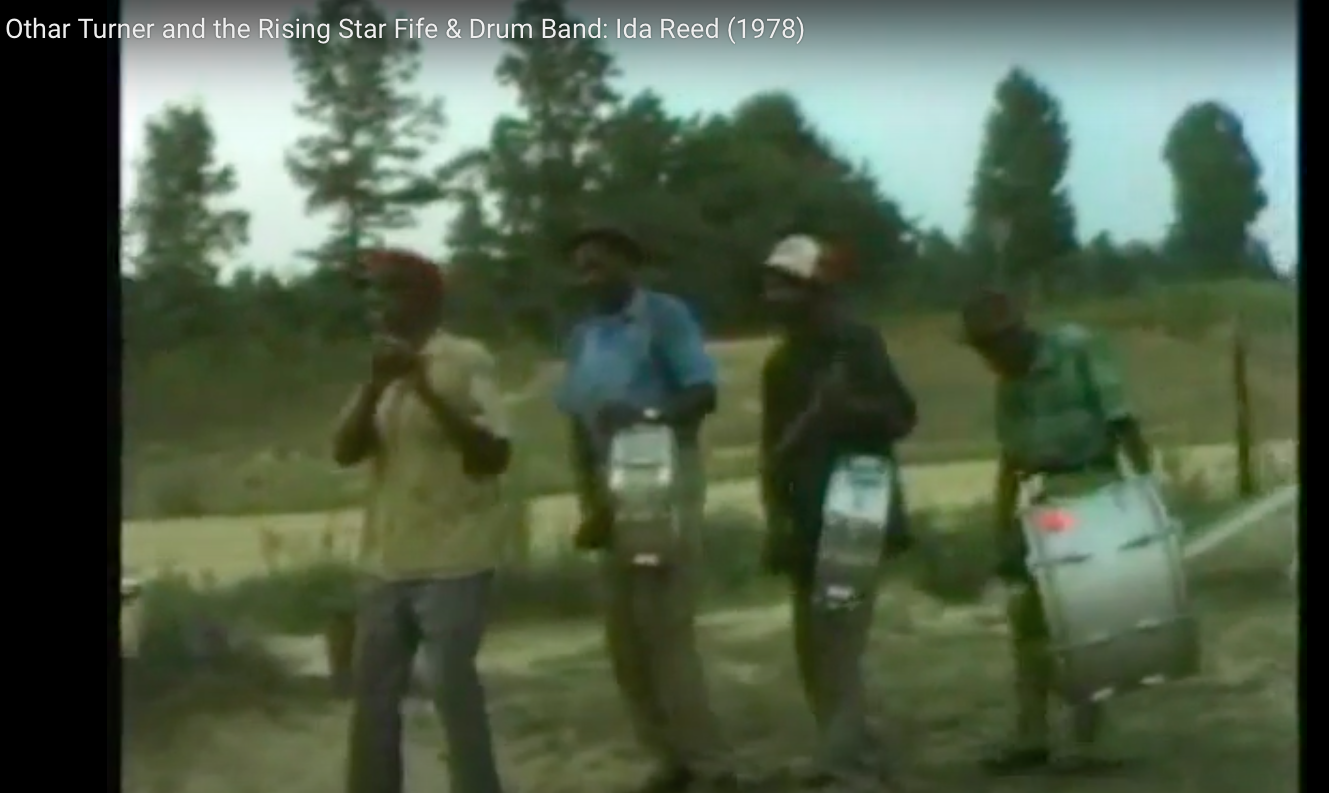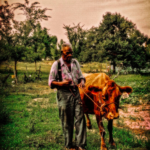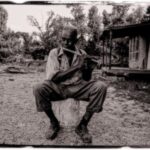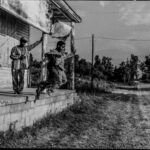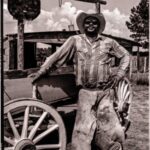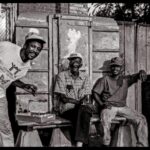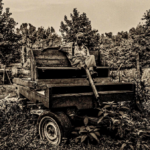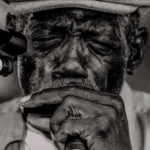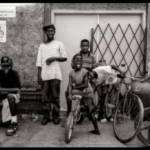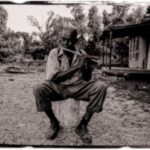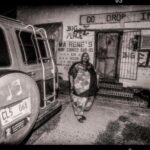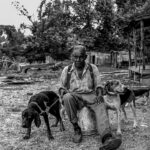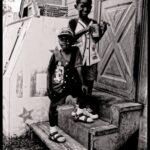Crossroads: Limited Edition Photography of the Kindred Spirits and Music Legends of Mississippi by David Stevens
Global Artists Coalition is proud to announce this new series of curated visual imagery and limited edition prints from a group of hand-selected visual artists from across the United States and around the world.
Photojournalist and filmmaker David Stevens opens a window to the beautiful spirits of the Mississippi Delta and Hill Country, capturing his subjects with integrity, sensitivity and historical context.
His work will be on display at The Nelson-Atkins Museum of Art, opening June 5, 2021 at 4525 Oak Street, Kansas City, MO.
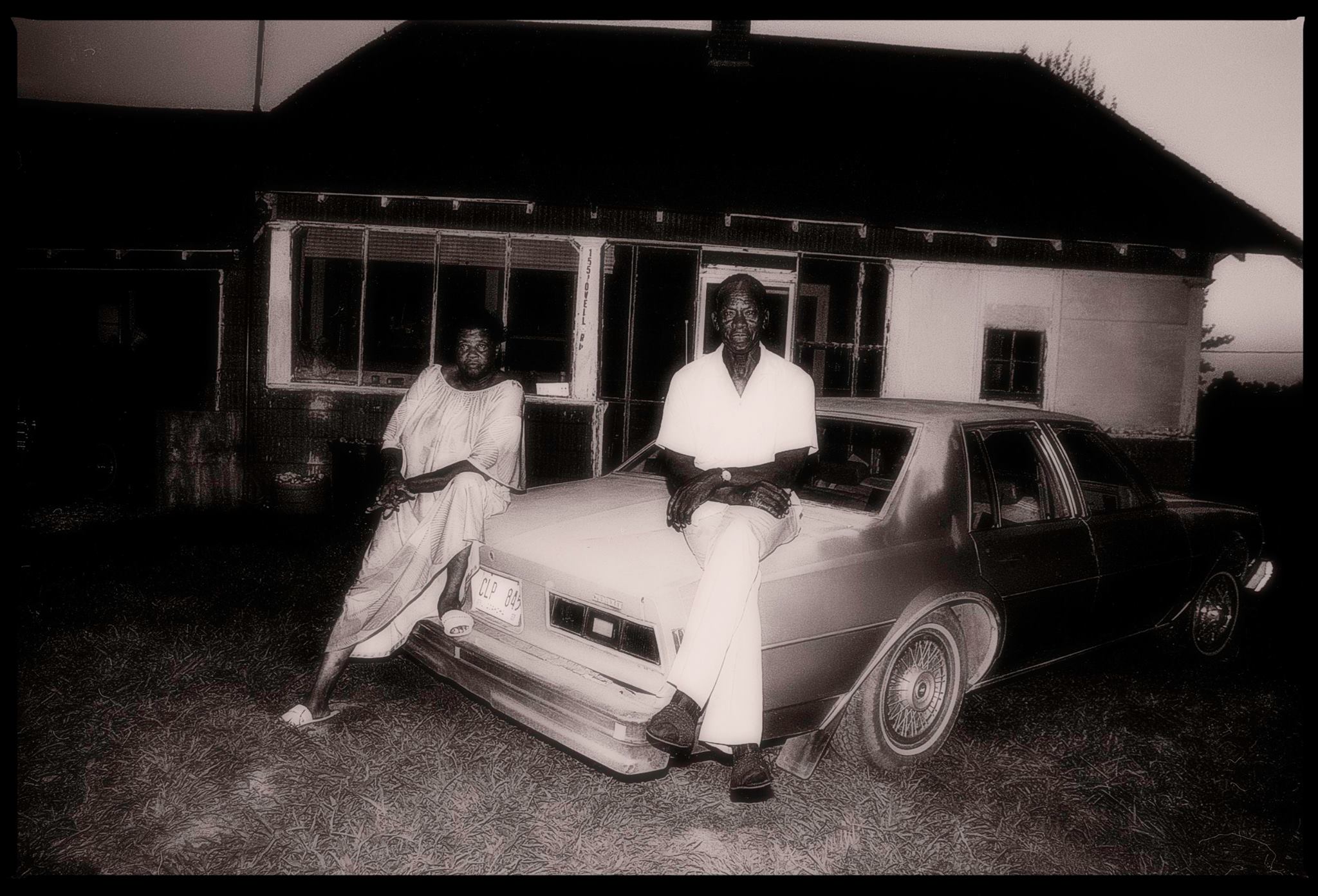
Photo Archive of the kindred spirits of Mississippi, featuring Blues Legends, Sam Carr, Frank Frost and Otha Turner.
Stevens has taken his exploration of black & white and color compositions to new heights and dramatic effects.

Meet the photographer
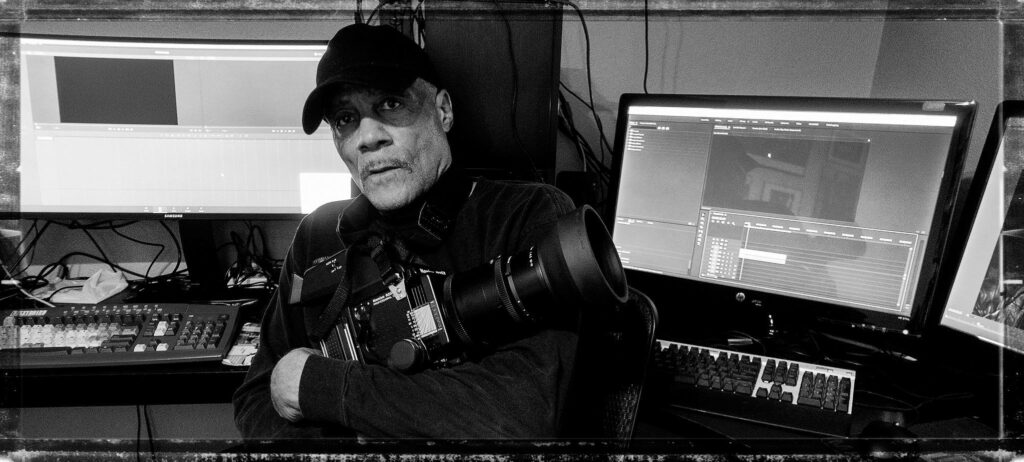
Stevens studied at the University of Kansas in Lawrence, KS before leaving for the U.S. Army and rising to Second Lieutenant in the Signal Corps (Communications). Stevens later became Director of the University of Iowa’s Minority Film Workshop.
Working for NBC Channel 4 In Denver as a photojournalist in the mid 1970s, Stevens made his first sojourn to Mississippi. Later, Stevens accompanied by his lifetime friend the artist Floyd Tunson, returned to Mississippi where they traveled the Delta region, interviewing local residents and capturing timeless photographs of the beautiful spirits they met along their journey.
A trip through time revealing a vibrant past, present and future of the Deep South.
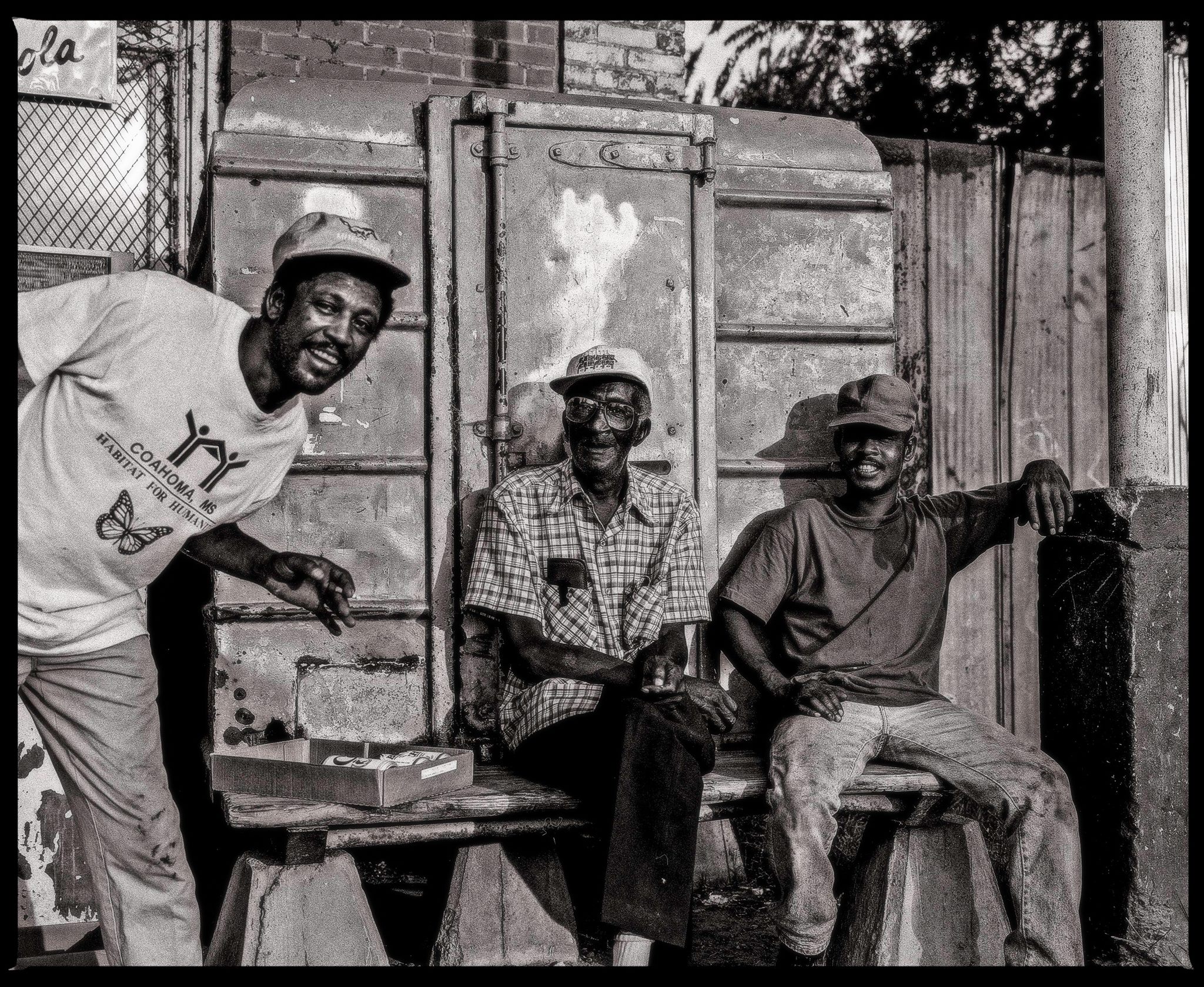
The muddy water and rich soils of the Mississippi grow more than just cotton. Rooted in the songs sung by Africans working the fields into what later became old negro spirituals, the Blues emerged like a phoenix from the ashes.
Rock ‘n’ roll was born here, rising straight from the Blues. Rhythm and blues and jazz share a Blues legacy. Gospel and country also have strong roots in the Delta.
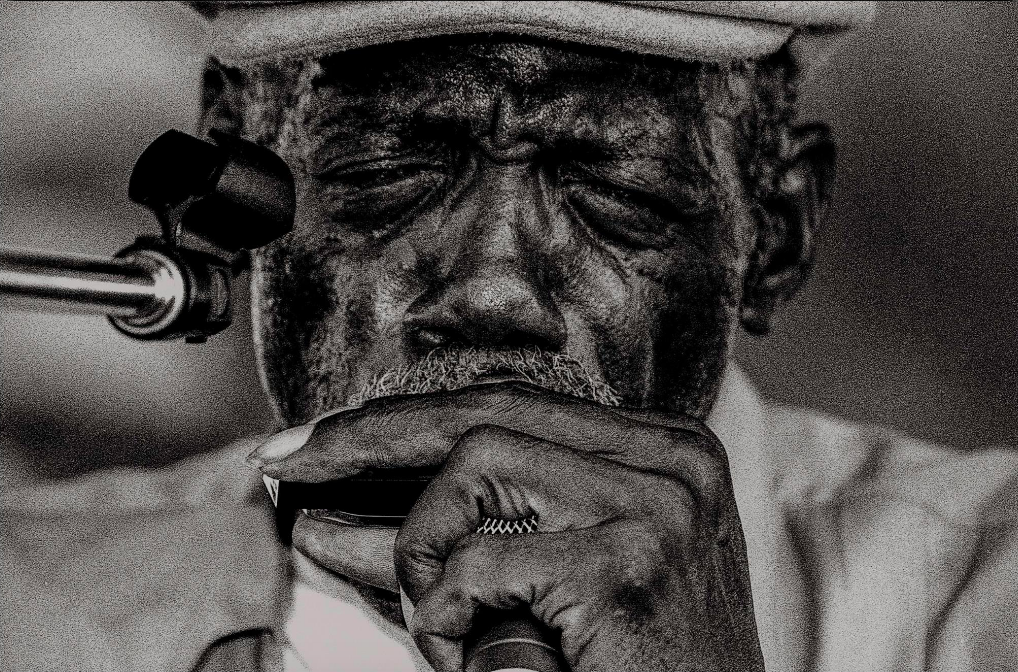
Historically, Mississippi is a land stolen from the Native peoples. Once they were wiped away, the land was cleared, watered and made productive for intensive agriculture through Africans stolen from their homelands. Calling this distinctly American music genre the Blues is truly sublime when you consider the deep seated emotions and ghosts that haunts what is known as the Black Belt of America.
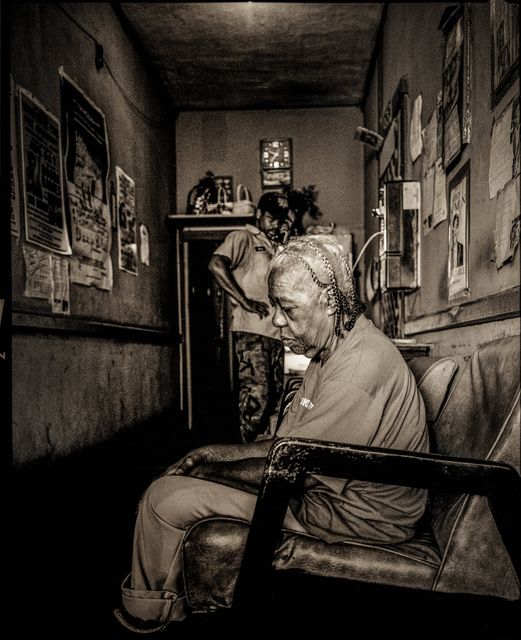
The Riverside Hotel of Clarksdale Mississippi, formerly the segregated G.T. Thomas Afro-American Hospital remains quite literally at the crossroads of the Deep South.
Since 1944, the Riverside Hotel, was one of only a handful of African-American hotels that provided safe haven for travelers in Mississippi under Jim Crow law. The hotel was included in the famed Green Book and where legendary artists such as Duke Ellington, Muddy Waters, Howlin’ Wolf, Sam Cooke, Ike Turner, John Lee Hooker, Sonny Boy Williamson II, Robert Nighthawk and more were known to lay their heads when traveling the Chitlin’ Circuit.
Before becoming a Hotel for African-American travelers, it was the G.T. Thomas Afro-American Hospital, a facility for black patients during segregation.
In the fall of 1937, Bessie Smith died at G.T. Thomas Afro-American hospital, after a car accident on the famous Highway 61 in route from Memphis to Clarksdale. Some accounts of Bessie Smith’s last hours add the detail that her ambulance was turned away from a closer whites-only hospital which may of led to her untimely demise.
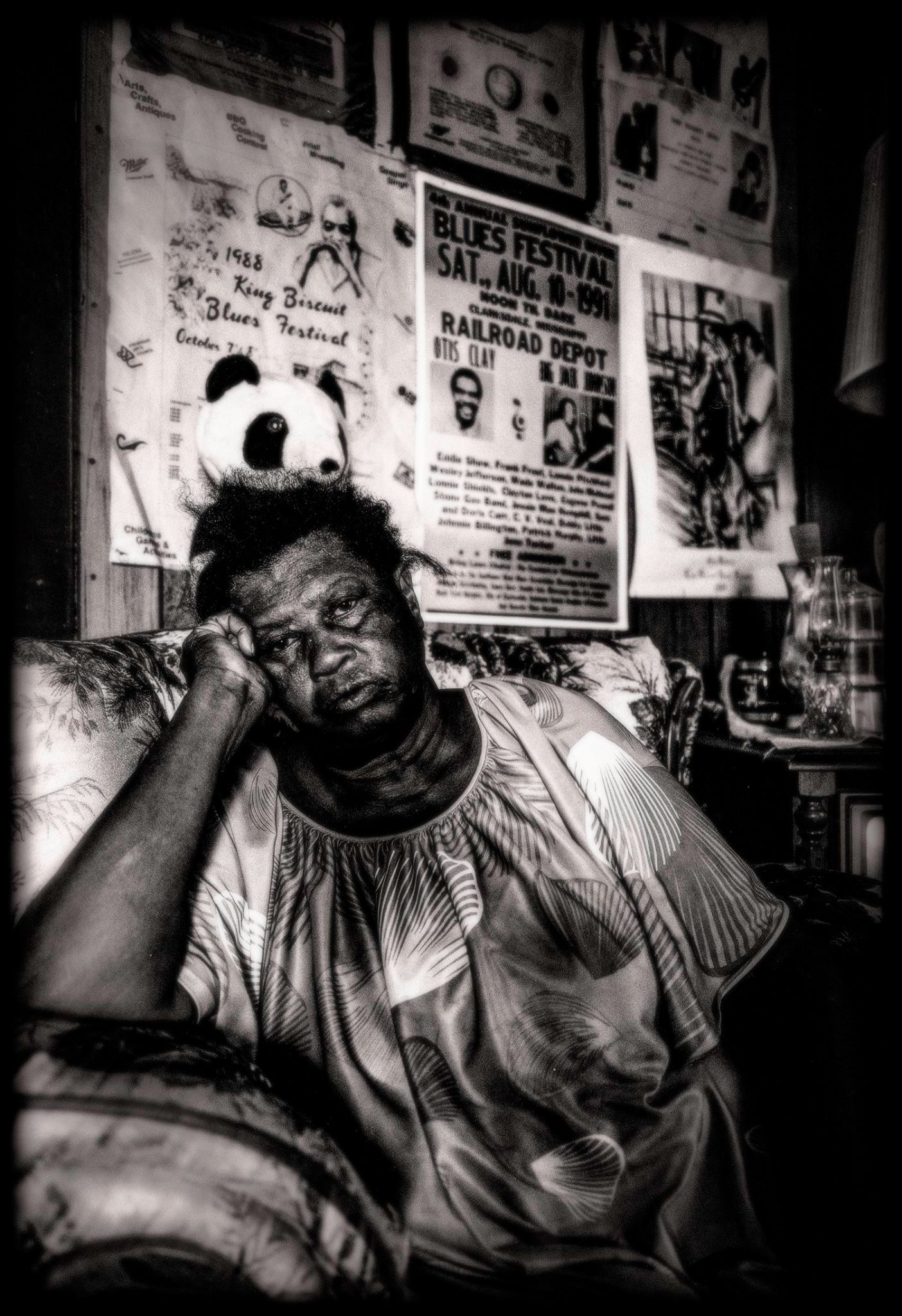
For a limited time! Framed gallery prints shipped directly to your door.
3 Select Prints, 76″ x 34″ Display Size: Matted, Framed and shipped. Includes Print number, Artist’s digital signature and Certificate of Authenticity. Custom orders available.
A set of 3 original framed and matted prints, starting at $1,200
For inquiries:

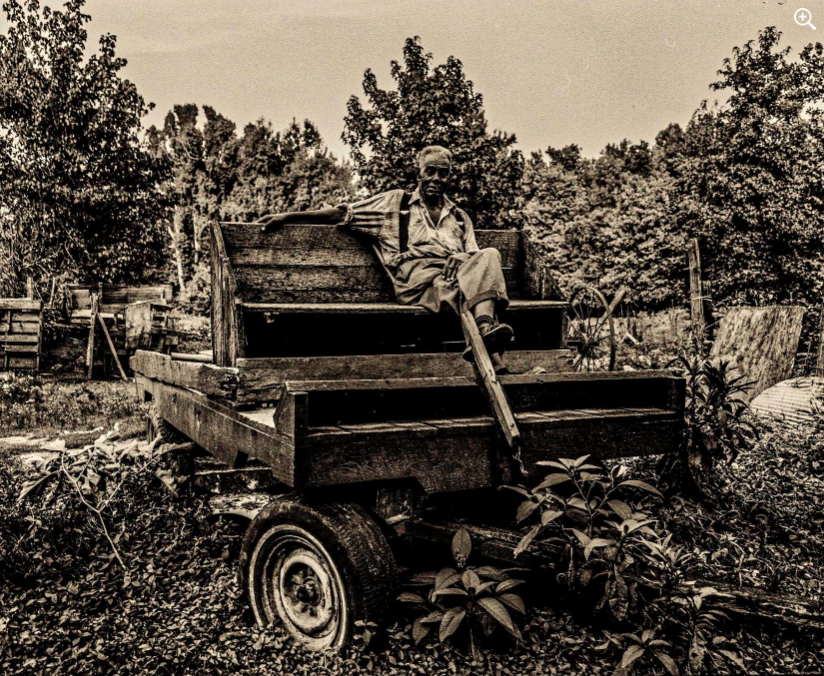
Throughout Mississippi you’ll find much of the scenery exactly as it was 50, 75, even 100 years ago. Imposing plantations and ramshackle shotgun houses still populate the countryside, along with fields of cotton that dot the rural landscape, stretching into the horizon.

It is a place where African-Americans live in both past and present worlds. The faces and names passed down from men and women who were owned here, kept here and who chose to stay here, some tilling the same fields their forebears tended.

Slave owners –fearing that African drum beats could be used to spark a slave rebellion – denied access to drums and musical instruments.
The use of musical instruments by slaves was also restricted by law.
Not until the end of the Civil War, when the ban on instruments was lifted, did the sounds of Mississippi begin reaching a larger audience.
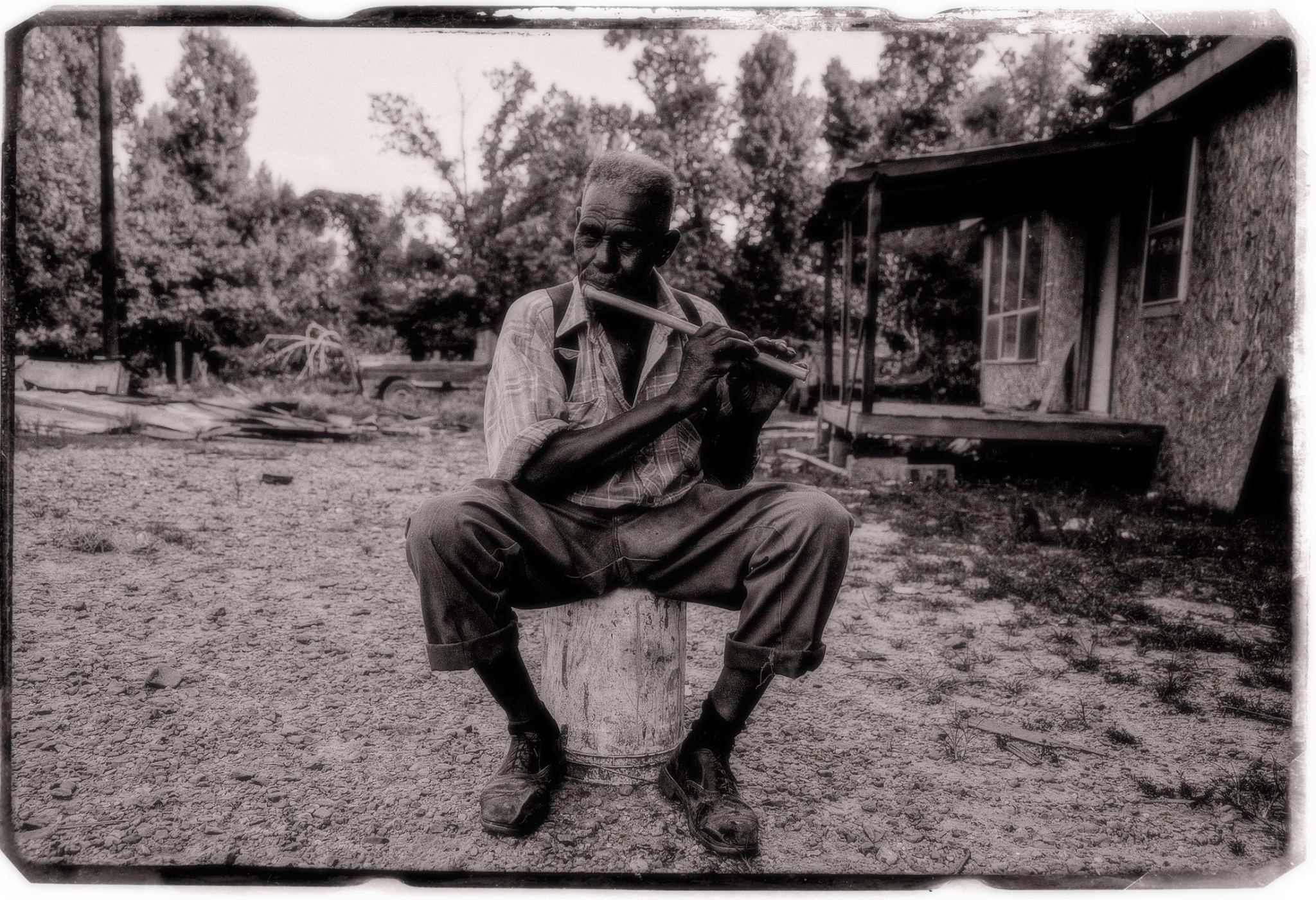
Back in the day, the liveliest parties were thrown by those who labored all week as sharecroppers then gathered at night at local juke joints to drink bootleg liquor and dance to the rhythm of slide guitar or a fife flute and the chorus drums played by vagabond musicians.
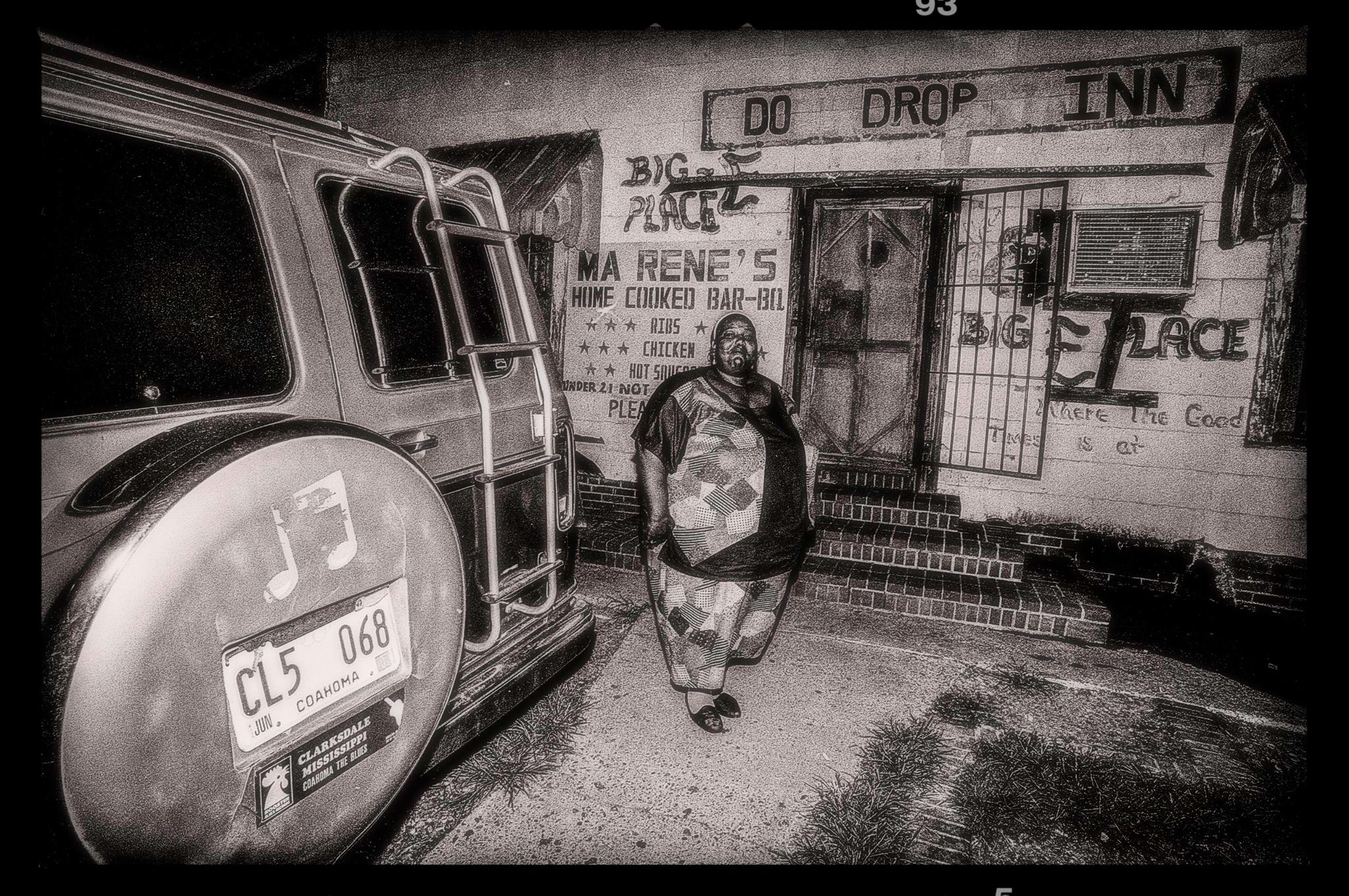
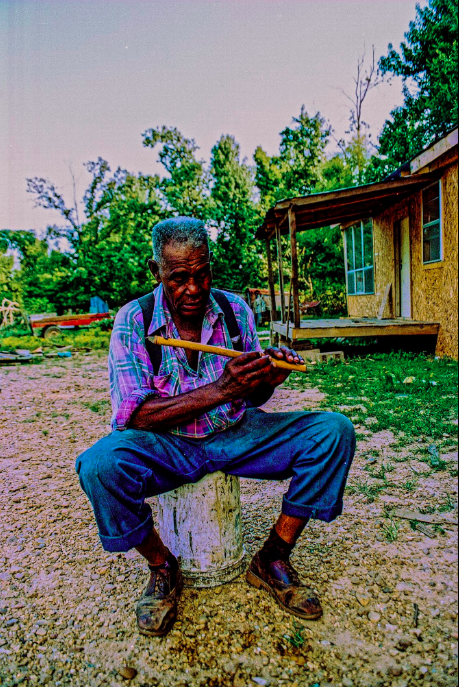
Some of the purest and most authentic ancestral African-American folk music ever recorded and demonstrating a clear link to the West African Fife and Drum traditional.
A familiar and haunting syncopation found in the music of transplanted Africans worldwide.
Turner got his start as a performer by playing the fife and drums at local picnic celebrations. Money he raised playing at these gatherings enabled him to buy the farm where he lived in the Gravel Springs Community outside Como, Mississippi until his passing in 2003 at the age of 94.
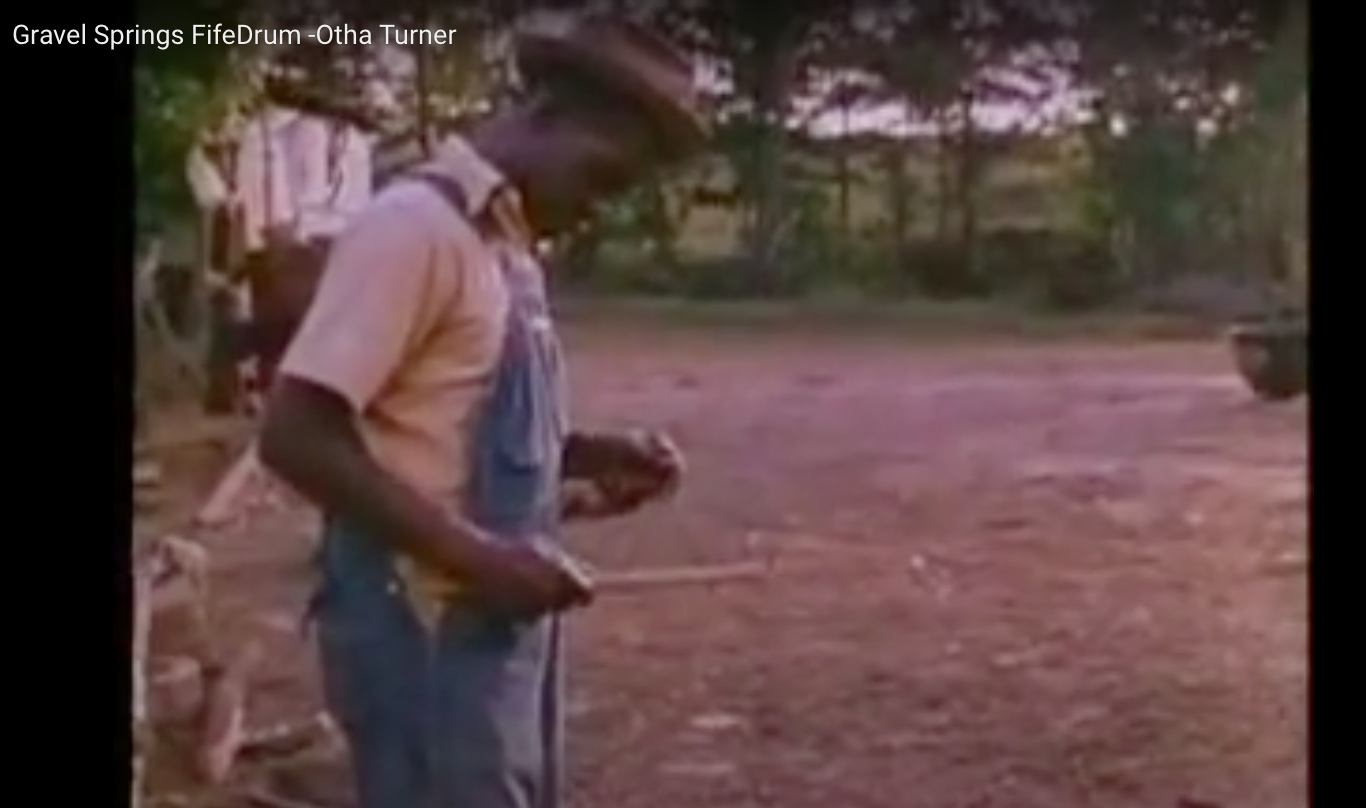
He was also the leader of the Rising Star Fife and Drum Corps, the only Mississippi fife and drum corps band left in America. Today, this small band consists of his daughter, Bernice, his grandsons, his granddaughter, and his nephew.
Until the day he died, Turner still farmed, raised horses, hogs, cattle, watermelon, black-eyed peas and corn.
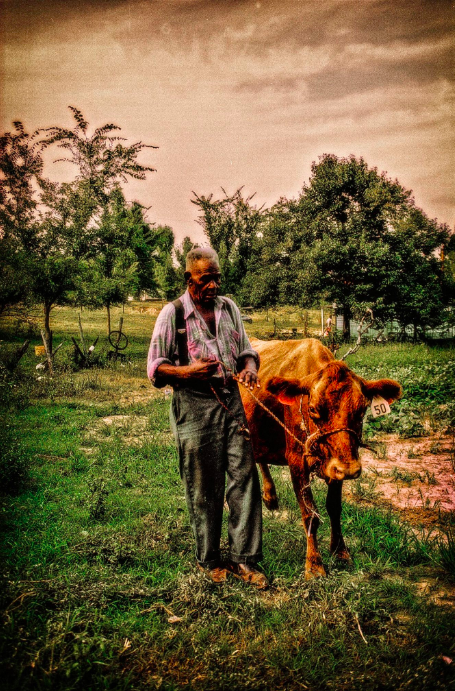
Turner’s unique style of fife and drum music has received national accolades and awards, including a National Endowment for the Arts Heritage award, the Smithsonian Lifetime Achievement Award, and the Charlie Patton Lifetime Achievement Award from the Mississippi Delta Blues and Heritage Festival.
If you would to purchase one or a series of Crossroads limited Edition Prints by David Stevens, please contact us.


